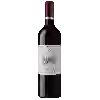
Château La TuiliereChatêau le Clos du Merle Rosé
This wine generally goes well with beef and game (deer, venison).
Food and wine pairings with Chatêau le Clos du Merle Rosé
Pairings that work perfectly with Chatêau le Clos du Merle Rosé
Original food and wine pairings with Chatêau le Clos du Merle Rosé
The Chatêau le Clos du Merle Rosé of Château La Tuiliere matches generally quite well with dishes of beef or game (deer, venison) such as recipes of borscht (russia) or duck fillets with honey.
Details and technical informations about Château La Tuiliere's Chatêau le Clos du Merle Rosé.
Discover the grape variety: Merlot
Merlot noir is a grape variety that originated in France (Bordeaux). It produces a variety of grape specially used for wine making. It is rare to find this grape to eat on our tables. This variety of grape is characterized by small to medium sized bunches, and medium sized grapes. Merlot noir can be found in many vineyards: South West, Languedoc & Roussillon, Cognac, Bordeaux, Loire Valley, Armagnac, Burgundy, Jura, Champagne, Rhone Valley, Beaujolais, Provence & Corsica, Savoie & Bugey.
Informations about the Château La Tuiliere
The Château La Tuiliere is one of wineries to follow in Côtes de Bourg.. It offers 6 wines for sale in the of Côtes de Bourg to come and discover on site or to buy online.
The wine region of Côtes de Bourg
The wine region of Côtes de Bourg is located in the region of Côtes de Bordeaux of Bordeaux of France. Wineries and vineyards like the Domaine Roc de Cambes or the Château Tayac produce mainly wines red and white. The most planted grape varieties in the region of Côtes de Bourg are Merlot, Cabernet-Sauvignon and Cabernet franc, they are then used in wines in blends or as a single variety. On the nose of Côtes de Bourg often reveals types of flavors of oak, sweet tobacco or pineapple and sometimes also flavors of cigar, ripe blackberries or bell pepper.
The wine region of Bordeaux
Bordeaux, in southwestern France, is one of the most famous, prestigious and prolific wine regions in the world. The majority of Bordeaux wines (nearly 90% of the production Volume) are the Dry, medium and Full-bodied red Bordeaux blends for which it is famous. The finest (and most expensive) are the wines of the great châteaux of Haut-Médoc and the right bank appellations of Saint-Émilion and Pomerol. The former focuses (at the highest level) on Cabernet Sauvignon, the latter on Merlot.
The word of the wine: Lightning
Large capacity barrel.











